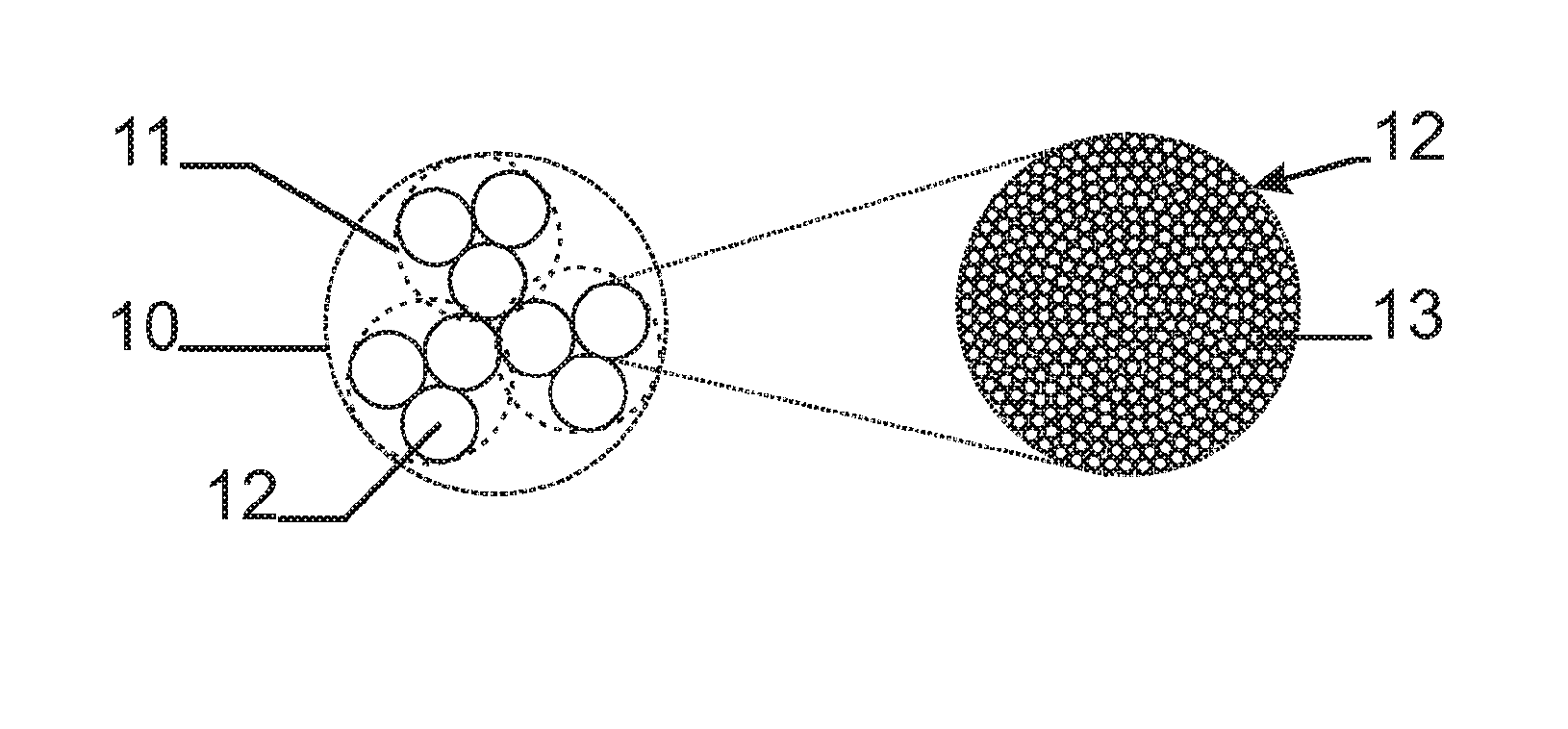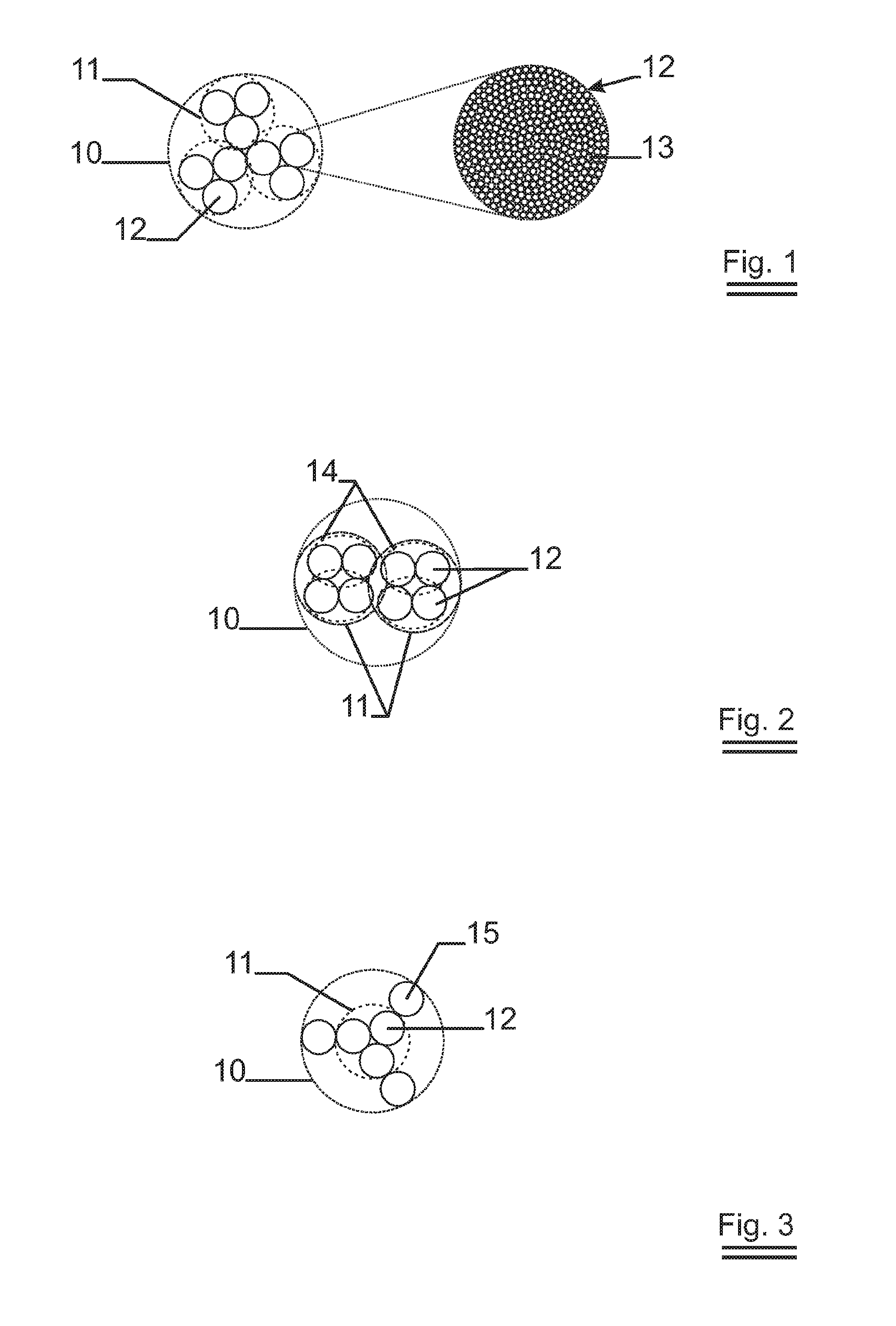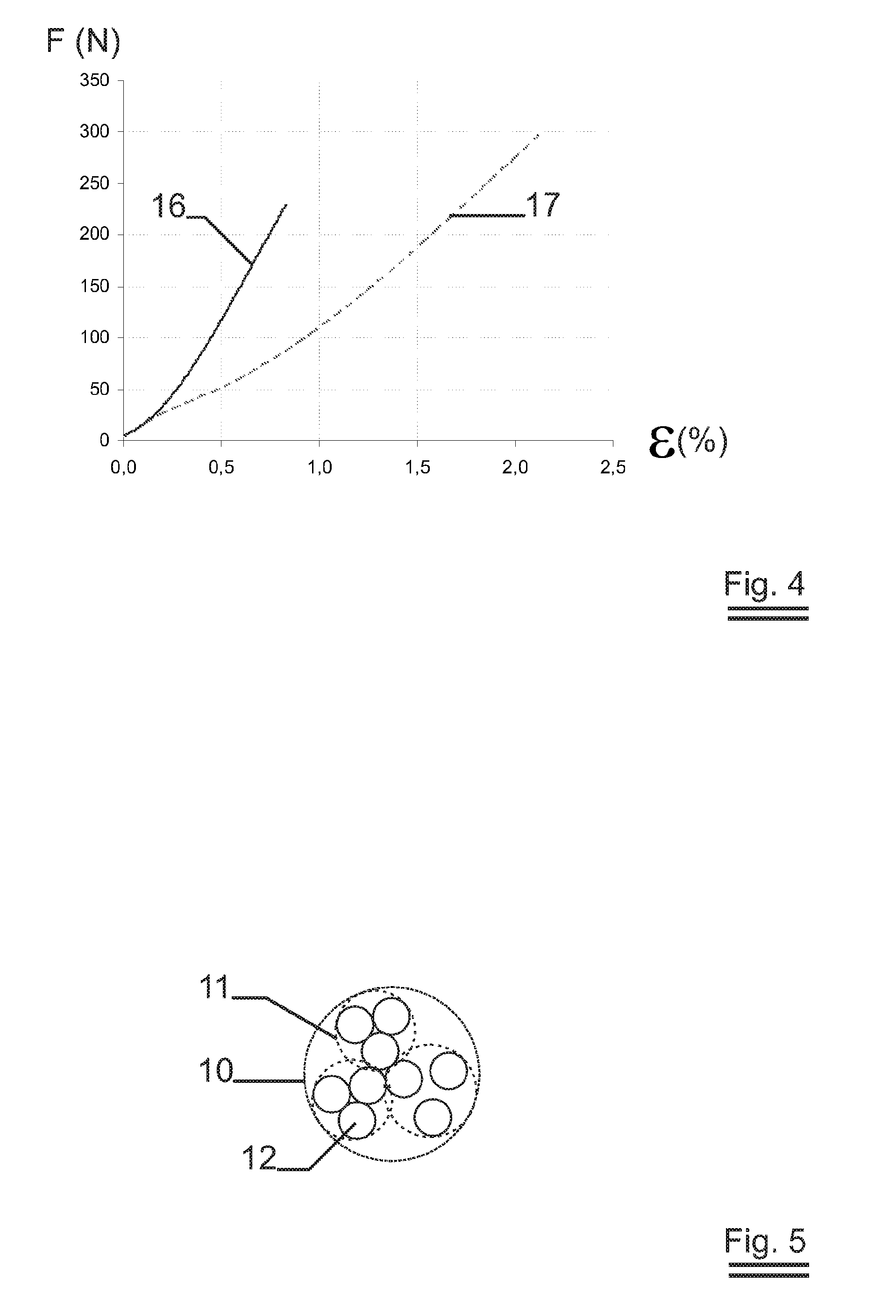Multibundle metal fiber yarn
a metal fiber yarn and multi-bundle technology, applied in the field of continuous metal fibers, can solve the problems of negative effect on the flexibility prone to sleeving of spiral winding around the outer circumference of a polyamide fiber core, and expected and desired increase of the strength of metal fiber yarn, so as to achieve no loss of flexibility
- Summary
- Abstract
- Description
- Claims
- Application Information
AI Technical Summary
Benefits of technology
Problems solved by technology
Method used
Image
Examples
Embodiment Construction
[0043]Examples of metal fiber yarns and different methods for obtaining the metal fiber yarn of the invention will now be described with reference to the Figures.
[0044]FIG. 1 shows the transverse cross section of a 3×3 yarn. The final yarn 10 comprises 3 partial yarns 11 twisted around each other. The partial yarns 11 comprise 3 continuous metal fiber bundles 12 twisted around each other. Each fiber bundle comprises 90 continuous metal fibers 13. This yarn is produced in two steps.
[0045]FIG. 2 shows the transverse cross section of a 2×2×2 yarn. The final yarn 10 consists out of 2 partial yarns 11 twisted around each other. Each partial yarn 11 comprises 2 first partial yarns 14 twisted around each other. Each first partial yarn 14 comprises 2 continuous metal fiber bundles 12 twisted around each other and each fiber bundle comprises 275 continuous metal fibers 13. This yarn is produced in 3 steps.
[0046]FIG. 3 shows the transverse cross section of a (3×1)+3 yarn. The final yarn 10 co...
PUM
| Property | Measurement | Unit |
|---|---|---|
| equivalent diameter | aaaaa | aaaaa |
| equivalent diameter | aaaaa | aaaaa |
| equivalent diameter | aaaaa | aaaaa |
Abstract
Description
Claims
Application Information
 Login to View More
Login to View More - R&D
- Intellectual Property
- Life Sciences
- Materials
- Tech Scout
- Unparalleled Data Quality
- Higher Quality Content
- 60% Fewer Hallucinations
Browse by: Latest US Patents, China's latest patents, Technical Efficacy Thesaurus, Application Domain, Technology Topic, Popular Technical Reports.
© 2025 PatSnap. All rights reserved.Legal|Privacy policy|Modern Slavery Act Transparency Statement|Sitemap|About US| Contact US: help@patsnap.com



